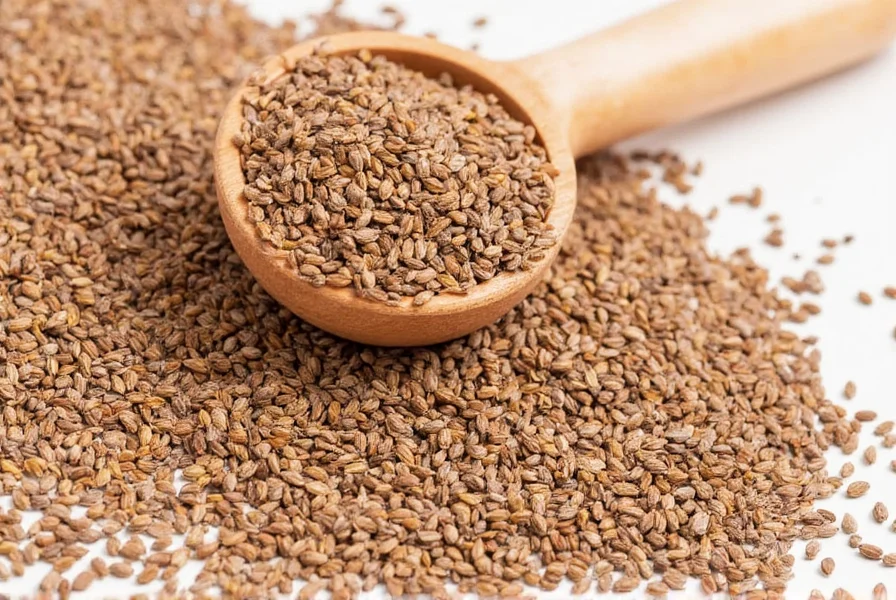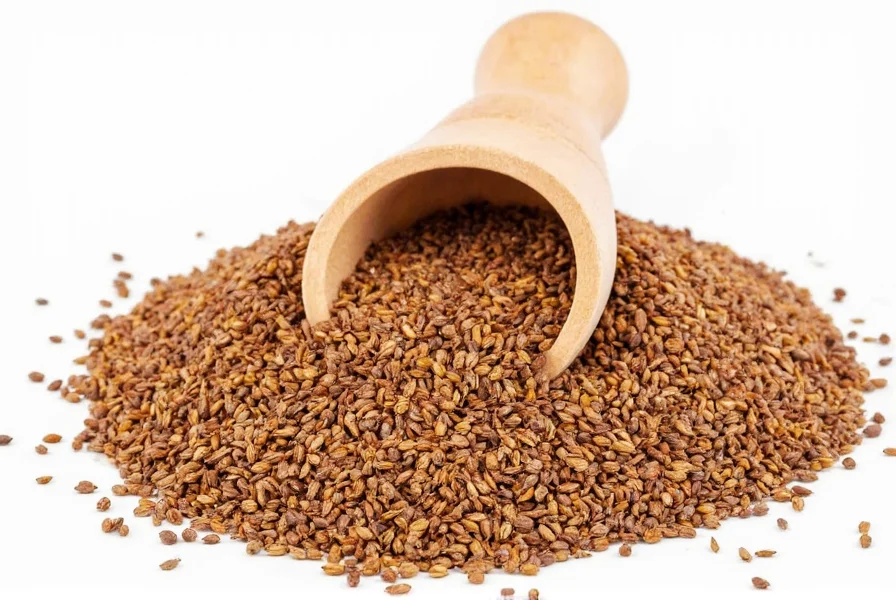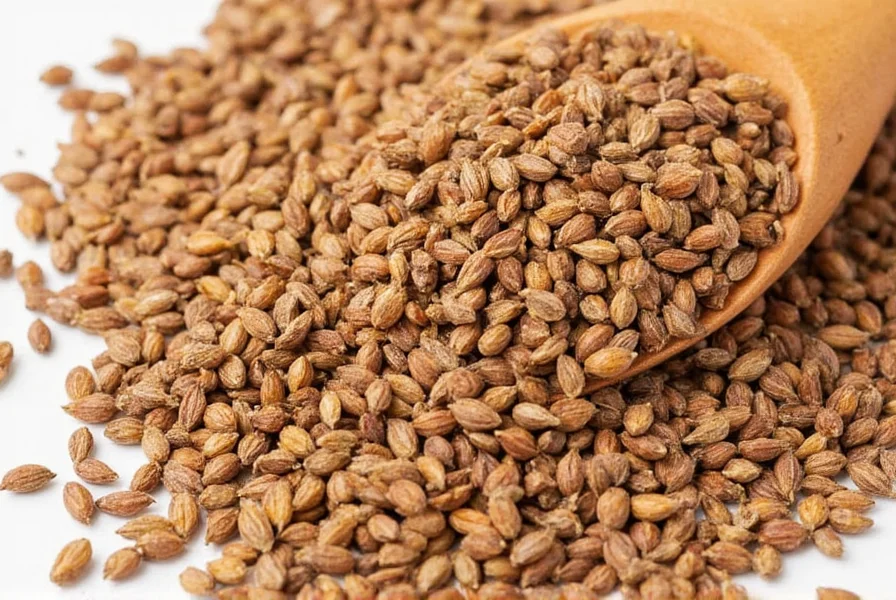Cumin seeds have been enhancing culinary traditions across Asia, Africa, and the Americas for thousands of years. These crescent-shaped seeds, technically dried fruit from the Cuminum cyminum plant, deliver a distinctive warm, earthy flavor with subtle citrus notes that transforms ordinary dishes into extraordinary culinary experiences. Unlike their ground counterpart, whole cumin seeds maintain their complex flavor profile longer and offer unique preparation techniques that maximize their aromatic potential.
Botanical Background and Historical Significance
Native to the eastern Mediterranean region, cumin (Cuminum cyminum) belongs to the Apiaceae family, sharing botanical relations with parsley, coriander, and caraway. Archaeological evidence shows cumin seeds in ancient Syrian settlements dating back to 2000 BCE and Egyptian tombs from the same period. Historical records indicate cumin's dual role as both culinary staple and medicinal remedy throughout ancient Greece, Rome, and India.
Traditional Ayurvedic medicine utilized cumin seeds for digestive support, while medieval European physicians prescribed them for various ailments. The spice traveled along ancient trade routes, becoming integral to Mexican, North African, and Indian cuisines. Understanding the historical context of cumin seeds helps appreciate their enduring global significance beyond mere flavor enhancement.
Nutritional Composition and Evidence-Based Health Benefits
Cumin seeds pack impressive nutritional density in their small size. Just one tablespoon (6g) contains significant amounts of iron, manganese, and calcium, along with beneficial plant compounds like cuminaldehyde and terpenes. Scientific research supports several health benefits associated with regular cumin consumption.
| Nutrient (per 100g) | Amount | %DV* |
|---|---|---|
| Calories | 375 kcal | 19% |
| Dietary Fiber | 10.5g | 38% |
| Iron | 66.4mg | 369% |
| Manganese | 1.9mg | 83% |
| Calcium | 931mg | 72% |
*Daily Value based on a 2,000 calorie diet
Recent clinical studies demonstrate cumin seeds' potential for improving digestive enzyme production, with one 2020 study showing significant reduction in symptoms of irritable bowel syndrome. The spice's antioxidant capacity, measured by ORAC (Oxygen Radical Absorbance Capacity), ranks among the highest of common spices, helping combat oxidative stress. Research published in the Journal of Ethnopharmacology indicates cumin may support healthy blood sugar levels through enhanced insulin sensitivity.
Mastering Culinary Applications of Cumin Seeds
The distinctive flavor profile of cumin seeds emerges through proper preparation techniques. Unlike pre-ground cumin, whole seeds benefit from dry toasting before use, which activates essential oils and deepens flavor complexity. Professional chefs recommend heating a dry skillet over medium heat, adding seeds, and stirring constantly for 1-2 minutes until fragrant but not browned.
When incorporating cumin seeds into dishes, timing matters significantly. In Indian cooking, seeds typically enter the hot oil at the beginning of preparation (tadka technique), allowing flavors to infuse the entire dish. Mexican cuisine often adds cumin later in the cooking process to preserve brighter notes. For optimal flavor extraction in soups and stews, crush seeds lightly with a mortar and pestle before adding.
Understanding the difference between cumin seeds and ground cumin proves essential for recipe success. Whole seeds maintain potency for 3-4 months when stored properly, while ground cumin loses volatile compounds rapidly, becoming bland within weeks. When substituting, use 1 teaspoon ground cumin for every 1½ teaspoons whole seeds, recognizing that texture and flavor release differ significantly.

Optimal Storage Methods for Maximum Freshness
Preserving cumin seeds' aromatic compounds requires proper storage techniques. Exposure to light, heat, and moisture rapidly degrades flavor quality. For maximum shelf life, store seeds in an airtight container away from direct sunlight at room temperature. Glass jars with tight-sealing lids prove superior to plastic containers, which can absorb aromatic compounds.
Refrigeration extends cumin seeds' shelf life to 12-18 months, though condensation risks require careful handling. Freezing represents the most effective long-term storage method, preserving flavor integrity for up to two years. When retrieving frozen seeds, allow the container to reach room temperature before opening to prevent moisture absorption.
Testing cumin seed freshness proves simple: rub a few seeds between your palms and inhale. Fresh seeds release a strong, warm aroma, while stale seeds produce little scent. Properly stored cumin maintains its characteristic earthy-citrus fragrance for significantly longer than commonly believed, making bulk purchases economical when storage conditions are optimal.
Flavor Pairings and Substitution Strategies
Cumin seeds harmonize beautifully with complementary spices to create complex flavor profiles. In Middle Eastern cuisine, they partner with coriander and cardamom; in Mexican cooking, they blend with chili powder and oregano; while Indian recipes often combine them with turmeric and mustard seeds. Understanding these traditional pairings helps recreate authentic dishes while encouraging creative experimentation.
When cumin seeds are unavailable, suitable substitutes depend on the recipe's requirements. Caraway seeds offer the closest flavor profile but with more pronounced anise notes. A combination of equal parts ground coriander and fennel seeds provides a reasonable alternative in many applications. For dishes where cumin serves as a supporting flavor rather than star ingredient, smoked paprika can provide similar earthiness with different aromatic notes.

Frequently Asked Questions About Cumin Seeds
What's the difference between cumin seeds and ground cumin?
Cumin seeds maintain their complex flavor compounds longer than ground cumin, which loses volatile oils rapidly after grinding. Whole seeds require toasting to release maximum flavor, while ground cumin integrates more quickly into dishes. One teaspoon of ground cumin equals approximately 1½ teaspoons of whole seeds, though flavor intensity differs due to varying extraction rates during cooking.
Can cumin seeds help with digestion?
Yes, multiple studies confirm cumin seeds stimulate digestive enzyme production. Research published in the Journal of Clinical Gastroenterology demonstrated significant improvement in IBS symptoms with regular cumin consumption. The seeds' thymol content promotes saliva production, while their fiber content supports healthy gut motility. For digestive benefits, chew ½ teaspoon of seeds after meals or prepare cumin water by steeping seeds in hot water.
How can I tell if my cumin seeds have gone bad?
Fresh cumin seeds should emit a strong, warm aroma when rubbed between your palms. Stale seeds produce little to no scent. Visually, they should appear uniformly golden-brown; dark spots indicate moisture damage. Taste testing reveals the most definitive assessment—fresh seeds have a warm, slightly bitter flavor that transforms to earthy-citrus, while stale seeds taste flat and one-dimensional. Properly stored seeds maintain quality for 12-18 months.
Are cumin seeds safe for daily consumption?
Yes, cumin seeds are generally safe for daily consumption in culinary amounts (1-2 teaspoons). However, excessive consumption (more than 1 tablespoon daily) may cause heartburn in sensitive individuals or interact with diabetes medications due to potential blood sugar effects. Pregnant women should consume cumin in normal food quantities but avoid medicinal doses. As with any dietary change, consult your healthcare provider if you have specific health concerns.











 浙公网安备
33010002000092号
浙公网安备
33010002000092号 浙B2-20120091-4
浙B2-20120091-4